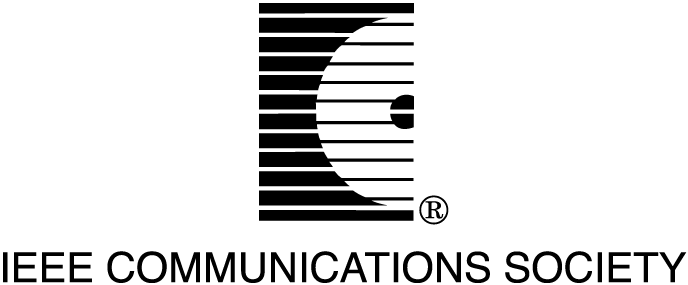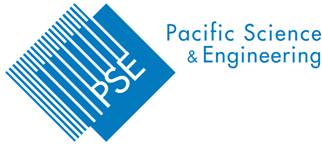Registration Hours and Location
Coronado Foyer| Monday | March 21 | 8:00 a.m. - 4:00 p.m. |
| Tuesday | March 22 | 7:00 a.m. - 4:00 p.m. |
| Wednesday | March 23 | 7:00 a.m. - 4:00 p.m. |
| Thursday | March 24 | 7:00 a.m. - 4:00 p.m. |
Program
Monday, March 21
Monday, March 21, 08:30 - 12:00
T1: Tutorial Session 1: Semantically Aware Uncertainty Management for Situation Awareness and Decision Support
Techniques for making semantic information explicit and computationally accessible are key enablers for systems to support situation awareness and decision-making. This tutorial introduces the PR-OWL probabilistic ontology language, an OWL upper ontology based on the MEBN probabilistic logic. PR-OWL ontologies can represent the knowledge needed to represent and reason about complex situations. The tutorial includes a hands-on demonstration of how to construct a probabilistic ontology from scratch and from an existing ontology. The Java-based, open source graphical probabilistic editor UnBBayes-MEBN will be used to illustrate the basic aspects of PR-OWL.
T2: Tutorial Session 2: Designing to Enhance Situation Awareness
The objective of this tutorial is to provide attendees with required background knowledge on theoretical aspects of situation awareness, including cognitive constructs that play a role in achieving it in complex domains, and, based on this model, to provide an approach for supporting SA through system design initiatives. The learning objectives for this tutorial include: (i) SA Requirements Analysis, (ii) SA-Oriented Design Principles, and (iii) SA Measurement and Validation.
Monday, March 21, 12:00 - 13:30
Lunch (On your own)
Monday, March 21, 13:30 - 17:00
T3: Tutorial Sessions 3: Context-enhanced Information Fusion
The purpose of this tutorial is to survey existing approaches for context-enhanced information fusion, covering the design and development of information fusion solutions integrating sensory data with contextual knowledge. This tutorial has four learning objectives: (i) understand fundamental concepts of context for Information Fusion, (ii) determine design patterns for context-aware systems, (iii) explore mathematical aspects and algorithms, and (iv) conclude with real-world context-aware Information Fusion applications.
T4: Tutorial Session 4: Knowledge Level Models of Situations and Situation Assessment: Theory and Applications
The purpose of this tutorial is to develop a deeper understanding of a "situation." This tutorial has six learning objectives: (i) get a deeper understanding of the concept situation, (ii) understand how the definition of situation affects and allows a more detailed description of situation assessment, (iii) get a more evolved understanding of the concept context when related to situation assessment, (iv) learn a formal framework for describing situations, (v) learn how to apply the formal framework on real-world examples, and finally, (vi) learn how the framework can be used when developing decision support software.
Monday, March 21, 18:00 - 21:00
Welcome Reception
Tuesday, March 22
Tuesday, March 22, 07:30 - 08:30
Breakfast (Included)
Tuesday, March 22, 08:30 - 09:00
General Welcome
Tuesday, March 22, 09:00 - 09:45
I1: Invited Talk: Situation Awareness: State of the Art
This presentation will provide an overview of situation awareness research, an update on its theoretical foundation, and its implications for the development of information fusion and decision support systems.
Tuesday, March 22, 09:45 - 10:15
C1: Coffee Break
Tuesday, March 22, 10:15 - 12:00
S1: Psychological Aspects to Human Situation Awareness
- Acute Stress Causes Overconfidence in Situation Awareness
- Effect of Personality Traits on Trust and Risk to Phishing Vulnerability: Modeling and Analysis
- A Task Analysis Toward Characterizing Cyber-Cognitive Situation Awareness (CCSA) in Cyber Defense Analysts
Tuesday, March 22, 12:00 - 13:30
Lunch (on your own)
Tuesday, March 22, 13:30 - 15:15
S2: Teamwork
- Elements of Team Effectiveness: A Qualitative Study with Pilots
- Team Communication Behaviors of the Human-Automation Teaming
- Timing Within Human-Agent Interaction and Its Effects on Team Performance and Human Behavior
Tuesday, March 22, 15:15 - 15:45
C2: Coffee Break
Tuesday, March 22, 15:45 - 17:00
K1: Keynote 1
Human-Robot Interaction (HRI) is an interdisciplinary field that aims to develop and evaluate interactions between humans and robots. As such it intrinsically incorporates experimental methods from cognitive science as well as algorithm and architecture development from computer science and robotics, providing a particularly fertile playground for research in embodied social cognition. In this presentation, I will use various examples from our work to show how robots can be used both as experimental tools for investigating different aspects of human cognition and as implementation platforms for evaluating cognitive models and computational architectures.
Wednesday, March 23
Wednesday, March 23, 07:30 - 08:30
Breakfast (Included)
Wednesday, March 23, 08:30 - 08:45
Announcements and Introductions
Wednesday, March 23, 08:45 - 09:45
Special Session: Tribute to Dr. David Hall
This session is dedicated to the memory and life work of Dr. David Lee Hall, the College of Information Sciences and Technology, The Pennsylvania State University. Colonel Jake Graham, USMC (Ret) and Dr. Alan Steinberg will highlight Dr. Hall's career, achievements, personal views, and remarks prepared by his family and colleagues.
Wednesday, March 23, 09:45 - 10:15
C1: Coffee Break
Wednesday, March 23, 10:15 - 10:45
I2: Invited Talk: Cognitive Systems Research

Wednesday, March 23, 10:45 - 12:00
S3: Decision Making
- Coherence-Driven Reflective Equilibrium Model of Ethical Decision-Making
- Assessing Multidimensional Complex Decision Making with Situational Judgment Tests
- Cognitive Biases in Humanitarian Sensemaking and Decision-Making: Lessons From Field Research
Wednesday, March 23, 12:00 - 13:30
Lunch (on your own)
Wednesday, March 23, 13:30 - 15:30
Poster Session and Demonstrations
- A Distributed Reputation Scheme for Situation Awareness in Vehicular Ad Hoc Networks (VANETs)
- BARRACUDA: An Augmented Reality Display for Increased Motorcyclist En Route Hazard Awareness
- Providing Distributed Situation Awareness to Human and Canine Tracking Teams
- Spatio-Temporal Situation Recognition for Groups in Caregiving Services
- The Effect of a Virtual Agent's Emotional Facial Expressions on the Mind's Eye Test
- Comparing Methods for Assessing Operator Functional State
- MoBI-Box: A Next Generation Mobile Brain-Body Imaging Platform
- The Importance of Psychophysiological Methods in Identifying and Mitigating Degraded Situation Awareness
- On Finding Appropriate Reject Region in Serial Fusion Based Biometric Verification
- Situations, Identity, and the Semantic Web
- A Dynamic Agile Process Model for Situational Awareness
- Applying Measurement to Complementary Situation Awareness
- Improving an Existent Supervisory Control Simulation Tool for Evaluations of Future Command and Control Systems
- Human Understanding of Controlled Natural Language in Simulated Tactical Environments
Wednesday, March 23, 15:30 - 17:15
S4: Ontologies and Reasoning
- Generic Application Driven Situation Awareness Via Ontological Situation Recognition
- Integrating GSO and SAW Ontologies to Enable Situation Awareness in Green Fleet Management
- Feature Selection for Situation Recognition in Fuzzy SOM-based Case-Based Reasoning
- Generic Pattern of Life and Behaviour Analysis
Wednesday, March 23, 18:00 - 21:00
Banquet Dinner & Awards Reception
Shared human-machine reasoning has been a topic of research for decades. Much prior work has focused on shared reasoning for selection of actions, with significant successes in areas including associate systems and control of unmanned systems. Recent work has enabled models of shared human-machine reasoning for descriptive situational awareness. Current and future military decision-making problems involve the combination of complex environments and sparse, inconclusive data raise the need for models of shared human-machine reasoning for explanatory and predictive situational awareness.
Thursday, March 24
Thursday, March 24, 07:30 - 08:30
Breakfast (Included)
Thursday, March 24, 08:30 - 08:45
Announcements and Introductions
Thursday, March 24, 08:45 - 09:45
K2: Keynote 2: Autonomous Horizons: System Autonomy in the Air Force
As the Department of Defense builds its Third Offset strategy for meeting the challenges of a newly forming adversarial environment such as light cyber-attacks and anti-access/area-denial (A2SD) actions, the potential advantages of unmanned systems and autonomous software have gained increasing attention. These advantages are particularly advantageous to future Air Force operations by increasing the range of operations, enhancing capabilities and providing new approaches to air power. Increased levels of autonomy can be brought to bear to enhance operations in both manned and unmanned aircraft, and in operations in space, cyber, command and control, intelligence, surveillance and reconnaissance, readiness, and sustainment across the Air Force. In addition to discussing the above context, Dr. Zacharias will summarize the challenges of automation and autonomy for airman interaction and outline design approaches that produce autonomous systems ready to serve as a part of a collaborative team with airmen. He will then conclude by introducing a potential framework for autonomous systems research and development that he, with support from the Air Force Research Lab, plans to use to specify key "under the hood" functions, evaluate key technologies that can support implementation of these functions, and finally lay out a research strategy and demonstration program.
Thursday, March 24, 09:45 - 10:15
C1: Coffee Break
Thursday, March 24, 10:15 - 10:45
I3: Invited Talk: Applied Robotics for Installations and Base Operations (ARIBO)
Thursday, March 24, 10:45 - 12:00
S5: Interaction with Autonomous Systems
- Will Passengers Trust Driverless Vehicles? Removing the Steering Wheel and Pedals
- Developing a Feedback System to Augment Monitoring Performance of Aircraft Pilots
- Development of a Recognition Primed Decision Agent for Supervisory Control of Autonomy
Thursday, March 24, 12:00 - 13:30
Lunch (on your own)
Thursday, March 24, 13:30 - 15:15
S6: Monitoring
- Adding Contextual Information to Intrusion Detection Systems Using Fuzzy Cognitive Maps
- Using iBeacon for Intelligent In-Room Presence Detection
- Tool-supported Comparative Visualizations to Reveal the Difference Between 'What Has Been Designed' and 'How It is Perceived' for Monitoring Interface Design
- Managing Decisions for Smart Grid Using Interdependency Modeling
Thursday, March 24, 15:15 - 15:45
C2: Coffee Break
Thursday, March 24, 15:45 - 17:15
S7: Dealing with Emergencies & Risk
- Towards Reducing the Reaction Time of Emergency Services Through Improved Situation Assessment
- Mining the Disaster Hotspots - Situation-Adaptive Crowd Knowledge Extraction for Crisis Management
- A New Approach to Customization of Accident Warning Systems to Individual Drivers
- Enhancing Hazard Awareness with a Mobile Application for High Risk, High Consequence Avalanche Terrain Decisions
Friday, March 25
Friday, March 25, 08:30 - 10:30
2017 Planning Meeting
This is an invited session. Please let us know if you are interested in supporting the 2017 Techinical Program Committee or Planning Committee.










